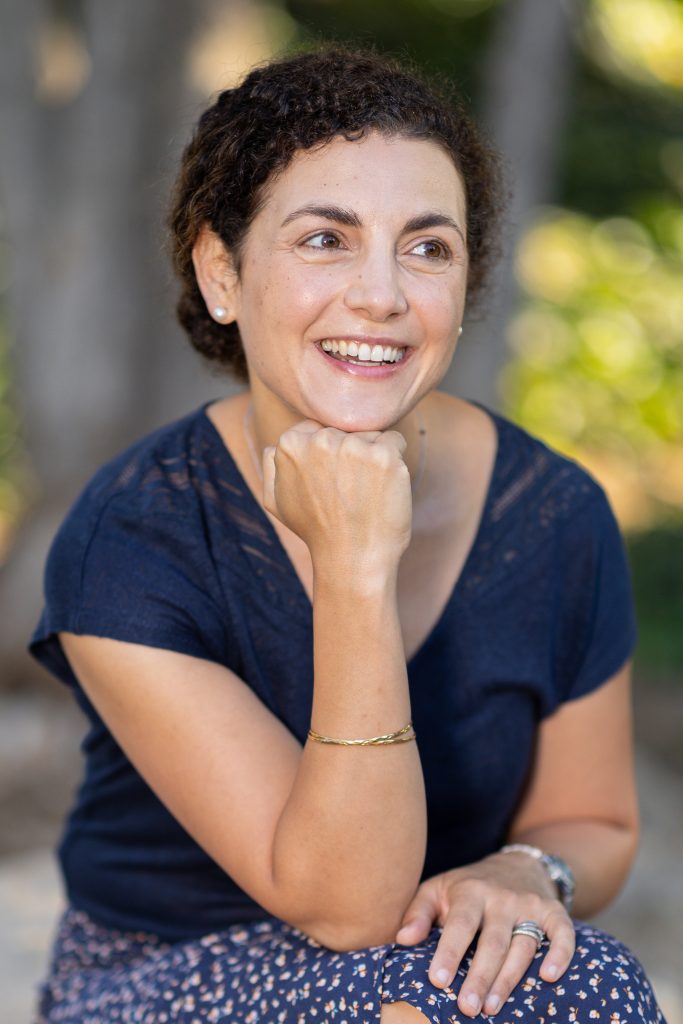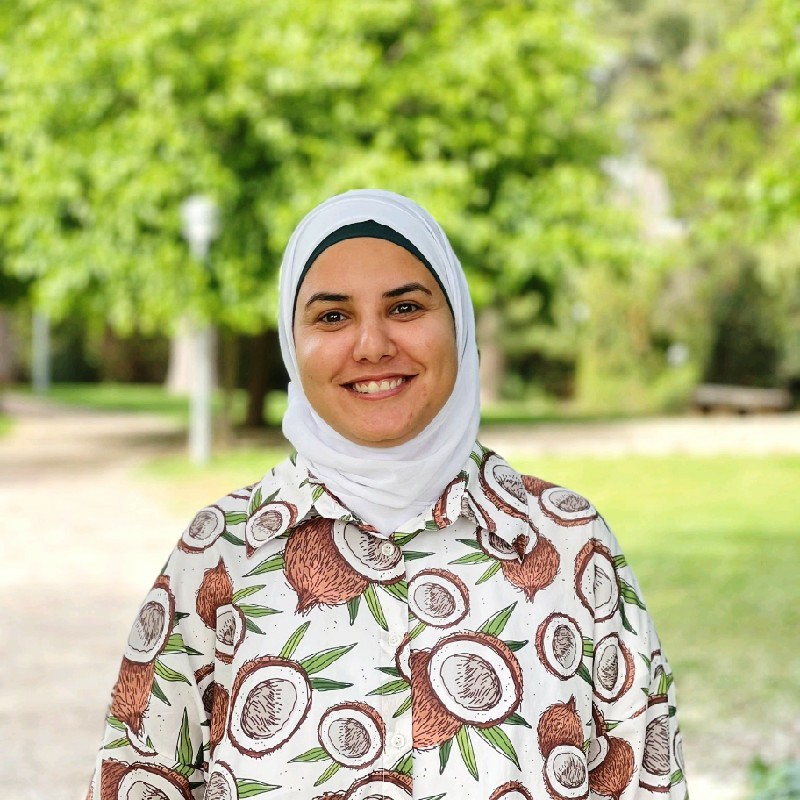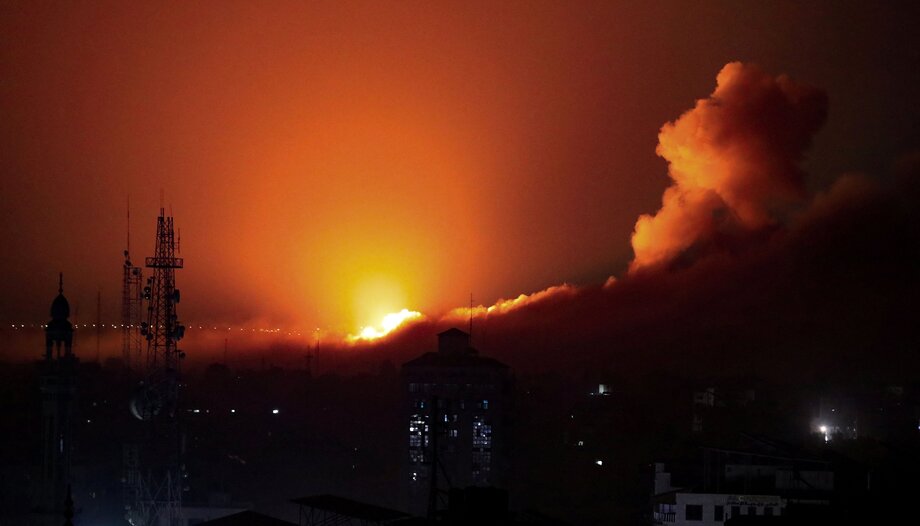 Francis on the war in the Holy Land: "In the name of God, enough".
Francis on the war in the Holy Land: "In the name of God, enough". Pierbattista Pizzaballa, Latin Patriarch of Jerusalem: "We have to work for the cessation of hostilities."
Pierbattista Pizzaballa, Latin Patriarch of Jerusalem: "We have to work for the cessation of hostilities."It is difficult to understand what is currently happening in the Holy Land. The complexity of the historical, political and social context is coupled with the impartiality of the media and the difficulty of finding reliable sources that shed some light on what is really happening.
Often, the best thing to do when you want to find information is to ask the people on the ground. That's why Omnes, in partnership with CRETIO Voices, has interviewed two women from the Holy Land, one Jewish and one Muslim, and asked them about what is happening.
Testimony from the Israeli side comes from Sarah Sassoon, a Jewish mother, writer and researcher at Bar Ilan University. On the Muslim side, Omnes spoke with Ranin Jojas, an Arab woman who is involved in marketing and content creation, having been a teacher at the Polis institute for years.
The dialogue with both women focused on current events in the Holy Land, the media's approach and the lessons that can be learned by society in the aftermath of the war.
Beginning and current status of the conflict

On Saturday, October 7, Hamas launched a surprise attack on Israel. Gunmen fired on the Israeli population, while thousands of rockets fell on people. Israel's response was almost immediate and the army bombed the Gaza Strip. Benjamin Netanyahu then reported that Israel was at war. Two days later, Gaza was under siege, causing a humanitarian crisis that still affects more than two million people.
When asked about the start of the conflict, Sarah Sassoon summarized what happened by explaining that "Israel was attacked on the Jewish holiday of 'Simchat Torah' on Saturday, October 7, by an army of between 2500 and 3000 Hamas terrorists". On that day, Sassoon continues, the attackers "killed 1200, kidnapped 240 and wounded more than 4500 Israelis."
In the aftermath of that October 7, Ranin Jojas describes the current situation as "frustrating, depressing and full of confusion," to the extent that Jerusalem has become "complicated, complex and unpredictable." The city is today "a gray zone where Palestinians do not know whether they will return home every day or not."

In the streets of Jerusalem "the daily situation is the falling missiles" and "the funerals of soldiers who die every day," says Sarah Sassoon. Despite everything, the Israeli woman stresses, "the children go to school, and we try to keep things as normal as possible". In the end, what the inhabitants of the city are trying to do is "to hide our pain. We try to put on a brave face. We refuse to be victims, so we try to maintain a kind of routine punctuated by a lot of volunteering, visiting bereaved homes and supporting our neighbors and friends who are in distress."
Something similar is expressed by Jojas, who says that "routine is no longer really routine". The only thing they can now consider as routine is "the enormous number of wounded and dead". It is a situation that "is causing enormous damage to the mental health of each one of us. We are too exposed to live massacres".
Questions to the outside
Since the outbreak of the conflict, the international media have followed the steps taken by each of the parties. In turn, governments around the world have positioned themselves, provoking tensions in a diplomatic context already weakened by the war in Ukraine. Some have openly shown their support, while others deny it despite funding resources. However, the blocs seem relatively defined.
Among the countries supporting Israel there are the United States, Portugal, England, Norway and Australia. On the other hand, Palestine has the support of states such as Chile, Iran, Afghanistan, Algeria and Venezuela.
Both Ranin and Sarah confess to having doubts about the international reaction. The former high school teacher considers that "the most demanding question is how is it that all human rights and international law and the United Nations 'suddenly' can neither implement protection for the Palestinians nor indict Israel for its war crimes."
For her part, the Israeli mother thinks that Israel and its actions are being criticized "harshly". She thinks that "the facts are being ignored", that "anti-Semitism has increased and people freely protest calling for the death of Israel and the Jews". In the face of this, Sarah Sassoon asks, "where can Jews live in safety? Why is Israel being attacked for defending itself against new attacks like the one on October 7? Why aren't people angry at Hamas and the way it uses its people as a human shield?"
The media
Both women are of the opinion that the international media do not provide a complete picture of the conflict. The Israeli researcher believes that "the international media is overlooking the broader history of the Middle East." Relying on the theories of professors such as Gad Saad, she explains that "if the problem was land, this conflict would have been resolved with the UN Partition Plan in 1947. But Hamas's stated goal is to wipe Israel off the map." For the media to shed real light on the situation, she believes they need to "look at the broader issues and the deeper problems of the 'jihad,' rather than creating a binary story in which Israel is the strong aggressor and Hamas are freedom fighters."
Sassoon also highlights that not all Muslims see what is happening with the same eyes and not all agree with the October 7 attack. "In fact, the World Council of Imams in the first week of the war issued a 'fatwa' against Hamas and anyone who supports it, and the crown prince of Bahrain has openly condemned Hamas."
For her part, Ranin Jojas believes that "the vision of the international media is absolutely biased towards Israel's narrative, without any consideration for the narrative of the Palestinian people". She asserts that the people, everyone, should be given a voice through information. However, she believes, in everything related to the Israeli-Palestinian conflict, "the international media is the voice of the Israeli government. And not only that, but they hide information, giving a biased perspective, because the media "do not take into account the daily life of the cities outside Gaza".
Lights of hope
Despite the dreadfulness of the conflict, Ranin Jojas and Sarah Sassoon remain hopeful. The Arab content creator thinks there will be hope as long as "the Palestinians continue to believe first in their rights and then in having their own voice in the world." She also thinks it is important that "the world decides to raise its voice as they did with Ukraine".
On the other hand, the Israeli writer not only trusts in the end of the conflict, but hopes for "a vibrant and free Middle East that would take advantage of the cultural richness, knowledge and beauty that this part of the world has to offer". She thinks that "in this dream there is more love and creativity than hate and destruction," and that this is an idea shared by Israelis and Arabs alike.
However, Sassoon considers that in order to achieve this dream it is necessary "the acceptance by the Arabs of the Middle East of the Jewish State". Something that, despite its difficulty, has been reflected in reality in recent years, since Jews live in Israel "with two million Arabs, many of them peacefully and on an equal footing."
Lessons for the future
Still looking to the future, both the Muslim woman and the Jewish mother think there is room to learn from the conflict. Both believe that future generations, and today's society as a whole, can draw important lessons amid the chaos. Both call for common sense, not to be swayed by prejudices or unbiased opinions.
Ranin Jojas wants what is happening to encourage everyone to "educate themselves, to have a space for humanity, to doubt their previous resources and do their own research, and to summon the courage to talk, discuss and debate."
Sarah Sassoon says she would like "society to learn to use its heart wisely." In short, she says, "I want us to support coexistence, love and joy, not hate."
Information warfare
The war between Israel and Palestine is still raging. It is difficult to calculate the damage it is causing, as neither side provides information in a transparent manner. Nevertheless, it is estimated that the Hamas bloc has more than fourteen thousand casualties, thirty-six thousand wounded and seven thousand missing in the Gaza Strip alone. On the Israeli side, it appears that the death toll is over twelve hundred, seven thousand two hundred wounded and over two hundred kidnapped.
In addition, many foreign nationals have also died during the conflict. Especially during the first days several countries denounced the deaths, kidnappings or disappearances of people who were in the Holy Land at the time. From the United States, Thailand, Spain, Ireland or the Philippines, governments from all over the world raised their voices about the death of their citizens.
The situation became so dramatic at the end of November that the combatants had to agree to a temporary truce to allow access for medical supplies and food. During the cease-fire, hostages were also released from both Israel and Palestine.
The reality of what is happening in the Holy Land is difficult to see. Many voices denounce the media manipulation by the fighters, as well as the death of several journalists who were on the ground covering the events.
The core
In the testimonies of Ranin and Sarah, voices from the Holy Land are heard. They are voices involved in a conflict that mixes the religious with the political, the historical with the social. However, both testimonies emphasize that in the Holy Land what is being talked about is people, fallen soldiers, wounded children and separated families.
What is happening, beyond the destruction of a territory, affects thousands of people, and that is where the focus should be. This is what thousands of international organizations that are trying to alleviate the harsh effects of the combat are asking for. They are joined by many members of different religious denominations, including the Pope, who has been calling for peace since the beginning of the conflict.











